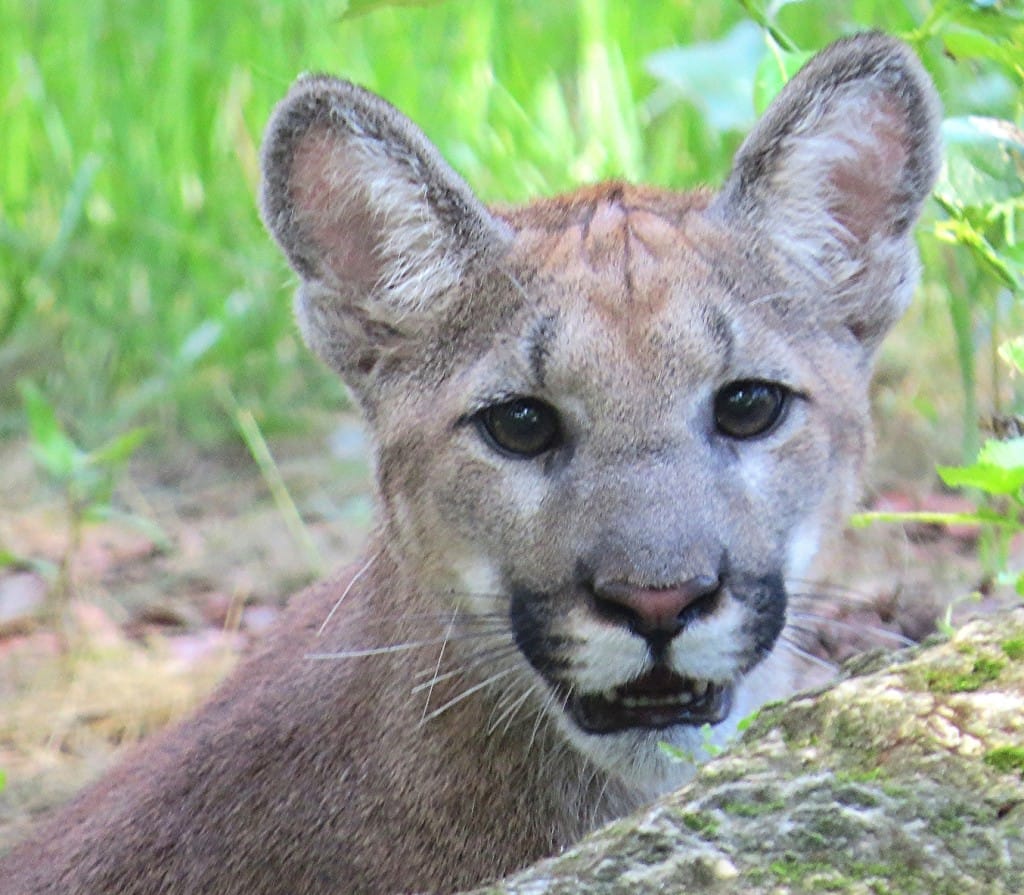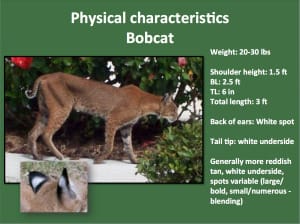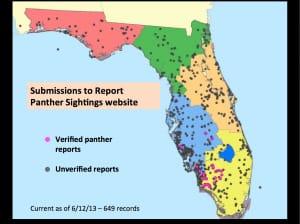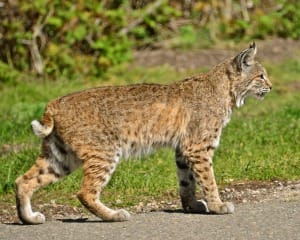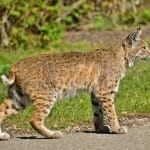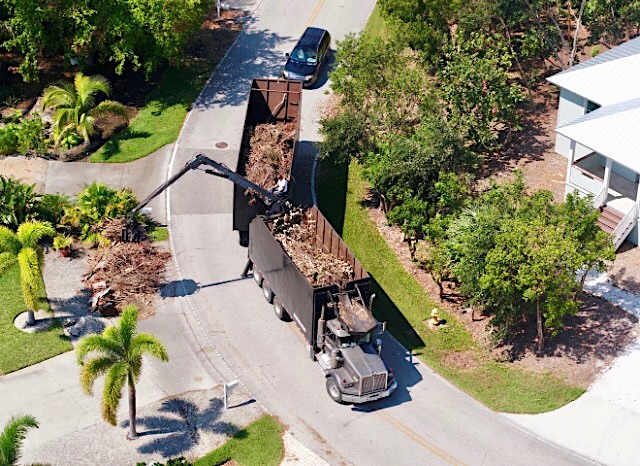 Florida Panther Population Increasing, But Probably Not On Sanibel & Captiva.
Florida Panther Population Increasing, But Probably Not On Sanibel & Captiva.
Conservation Success Leads To Increased Human Interaction With Florida Panthers.
Every year or two, a panther sighting is reported on Sanibel & Captiva Islands, but so far these reports have generally been considered to be mistaken identifications of large bobcats. Bobcats do have significant presence on both Sanibel & Captiva.
Panthers have not been confirmed to be living on the islands, but it may be just a matter of time given the increasing population of panthers in Florida and their relatively large presence in both Collier and Lee Counties.
As they mature, young male panthers tend to be “pushed” out of the area where they were born by established adult panthers, usually their father and mother. The young panthers seek to establish their own territories and look for a female mate.
The Florida Fish And Wildlife Conservation Commission(FWC) issued a release on the increasing Florida panther population this week.
“Over the past 40 years, Florida panther conservation efforts have resulted in the panther population growing significantly from the 1970s, when the panther was first federally listed as Endangered. As the population grows, the chance for interaction between the large cats and humans also increases – which can be bad for both people and panthers.
At one time, reports of panther sightings were rare. Today, even though panthers are generally shy and tend to avoid people, panthers are being seen with increasing frequency.
Panthers typically prey on a variety of wildlife such as deer, wild hogs, raccoons, armadillos and rabbits. Unfortunately, they sometimes prey on domesticated animals such as goats, sheep, calves and even pets. When a panther or other wild animal preys upon or injures a pet or domestic livestock it is called a depredation.
The Florida Fish and Wildlife Conservation Commission investigates reports of panther depredations on pets and livestock and works with residents to reduce these
incidents. So far in 2014, FWC staff has verified 32 panther depredation events, a record number, and all occurred in Collier County. In some cases, more than one animal is killed in a depredation; the 32 events have resulted in the loss of over 50 individual animals.
‘The likelihood of panther depredations on backyard animals and pets can be greatly reduced if people take the necessary precautions,’ said FWC panther team leader Darrell Land. ‘The best way to protect small livestock is to keep the animals in a secure, fenced enclosure with a roof, especially at night. Also, pets like dogs and cats should be kept indoors at night or in an outdoor, panther-proof pen.’
Reports of dangerous encounters with panthers are very rare in Florida. However, panthers are large, powerful
predators, and people should use caution if they see one. Here are some tips to avoid a negative interaction if you encounter a panther:
- Give the panther space. Most Florida panthers will avoid a confrontation. Give them a way to escape.
- Do not run. Stand and face the animal. Make eye contact.
- Avoid crouching or bending over, as it makes you look smaller, resembling a prey-sized animal.
- If attacked, fight back with whatever is at hand (without turning your back).
For more information about how to protect people, pets and livestock from panthers and other predators, visit FloridaPantherNet.org and click on ‘Living in Panther Country.’
To see if panther depredations are occurring in your area, visit FloridaPantherNet.org, click on ‘Panther Pulse’ and scroll down to ‘Depredations.’ You can sign up to receive panther information, including depredation e-mail updates, by simply clicking on the red envelope on any page of MyFWC.com and selecting ‘Florida Panther’ under the ‘Wildlife/Managed Species’ section.
Florida residents can support panther conservation efforts by purchasing a Protect the Panther license plate, available at BuyAPlate.com. Fees from license plate sales are the primary funding source for the FWC’s research and management of Florida panthers.
You can help with panther research by reporting panther sightings and uploading photos and video to the FWC, at MyFWC.com/PantherSightings.”

